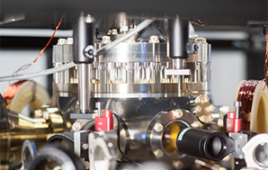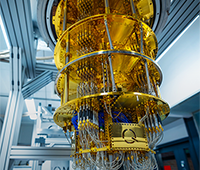Expanding European Scientific and Industrial Competitiveness: IDC-Led Study for the European Commission Recommends Supercomputing Strategy Through to the Year 2020
BRUSSELS, October 21, 2010 — International Data Corporation (IDC) today announced the publication of its
final report done for the European Commission that recommends the first-ever
supercomputing strategy for Europe as a whole. Through stepped-up investments
in high performance computing (HPC) resources between now and the year 2020,
the proposed strategy aims to help Europe advance to world leadership in
specific areas with strong potential for advancing Europe’s scientific and
industrial leadership.
The targeted areas
include weather and climate research, clean and sustainable energy, automotive
and aerospace design, bio-life sciences, particle physics, cloud computing,
modeling of new materials, and ultrahigh-performance (exascale) software
applications across a wide spectrum of disciplines, along with hardware
innovations. Europe already is strong in each of these areas, creating the
basis for pursuing global leadership.
The final report, A
Strategic Agenda for European Leadership in Supercomputing: HPC 2020
(IDC Special Study #SR03S), is the culmination of an IDC-led research study
carried out in collaboration with supercomputing experts from: Teratec, France; Daresbury Laboratory, U.K.;
Leibniz Rechenzentrum, Germany; and Forschungszentrum J?lich, Germany.
As part of this
study, a research-based interim report delivered to the European Commission
earlier this year noted that Europe has fallen behind the rest of the world in
HPC investments. From 2007 to 2009, Europe’s share of worldwide investment in
HPC declined from 34% to 25%. This decline is important, because prior IDC
studies established the close connection between HPC and scientific and
industrial competitiveness. Adjusted for gross domestic product (GDP), Europe
invests only 55 cents for every euro of investment in HPC made by the United
States. Other industrialized nations such as Japan, and emerging powerhouses
such as Korea, invest a greater proportion of their GDP in HPC than the
investment by the combined nations of Europe.
The final report
published today further recommends that:
- Europe
coordinates a program which includes substantially greater investment in HPC
facilities and the technical skills and training needed to take advantage of
them. The cost of the next generation of HPC systems is such that no one
European country can afford on its own to compete with the U.S. and others.
European cooperation is vital. - Improving
access to HPC systems (supercomputers) and the European skills base for HPC
systems management and algorithm development will be critical, particularly for
SMBs that need to begin using HPC in their product development to remain
competitive.
Commenting on the
strategy recommendations, Chris Ingle,
associate vice president of Consulting at IDC, said: “Although Europe has
lost ground in HPC recently, this study shows a path by which, with suitable
investment and organization, the gap with the global leaders can be closed and
Europe’s scientific and industrial competitiveness can be maintained and
advanced.”
Looking ahead to what
will be needed for success in 2020, Earl Joseph, IDC
program vice president for HPC, noted that: “The cost and complexity of
the next generation of HPC systems mean that Europe must be selective in its
investments. The proposed strategy exploits Europe’s existing strengths,
including advanced software development, and could help make Europe the world
leader in areas that will be crucial for global economic competitiveness in the
21st century.”
“The strategy
aims to augment rather than disrupt successful HPC research programs and
initiatives within Europe,” said Steve Conway,
IDC research vice president for HPC. “The idea is to make this
transformational technology more widely available to experienced HPC users and
more pervasively available to others, including smaller scientific
organizations and industrial firms of all sizes.”
Looking at the impact
of HPC on European competitiveness, Gabriella
Cattaneo, director of Competitiveness & Innovation Policies &
Strategies, Europe, at IDC Government Insights,
added: “Access to more HPC resources will be critical for the development
of the European Union’s scientific and industrial base. Building a scalable
research community and set of facilities, with wide access for science and
industry, will ensure that the proven benefits of HPC are felt across the
EU.”
The final report and
interim report are both available at www.hpcuserforum.com/EU.
For more information, contact:
Chris Ingle
[email protected]
+44 7876 548478
Michael Shirer
[email protected]
+1 508-935-4200



